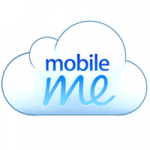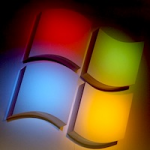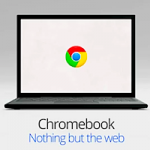My town government is kept offline and my taxes are kept up thanks to the dead tree lobby

I'm involved in local government in my town (Maplewood, NJ) and I'm always looking for ways for the town to save money in order to keep our outrageous property taxes under control. So I was heartened by a proposal for a state law permitting municipalities and individuals to publish legal notices on the town web site instead of in a local newspaper.
Legal notices are one of the main things keeping small, local newspapers in business. They're big, easy money. My dinky town has budgeted $20,000 for legal notices this year. The paper just has to reproduce the exact text provided to them; no sales, no editing, pretty much pure profit.
The real reason Nokia can't beat Apple

Finnish-phone maker Nokia could learn something from director J.J. Abrams and producer Steven Spielberg. They deliberately released only a teaser trailer, short on information and long on suspense, for movie "Super 8". The cryptic title evoked mystery, too. Had the trailer told the story, the movie might not be as successful.
Nokia marketing is good to a fault. Product advertising and marketing is among the best in techdom. The adverts and promo videos are often clever, funny, provocative and moving. Nokia knows how to motivate people to buy its products, in part because the marketing is memorable or truly aspirational -- that buyers lives will be better for being this Nokia phone or that one.
Will the US government be more efficient with iPads and Google?

What legacy will Vivek Kundra, the first Federal Government CIO, leave when he goes to academia? For all the grand plans to modernize, rationalize and streamline IT, so far he's mostly taken the government out computer shopping at Best Buy.
Most of the news stories about his recent resignation have focused on his plan to move the government into cloud computing and whether it would survive his departure. But Kundra also modernized government in other ways, with a flare for adopting some consumer technologies.
How stupid could Citi be?

In what is an embarrassing oversight for Citigroup, attackers that got away with information on over 200,000 credit card holders only needed to make a change in the string of the URL itself. This means that as long as you had the account number, you would be able to access all personal data associated with that particular account.
Citigroup should consider itself lucky that more customers did not have their accounts compromised. How the hackers got the credit card numbers themselves is not clear yet, but the vulnerability allowed them to jump among accounts automatically by just being logged in and running a script.
Google, gimme native screen capture for Android

Frak, do I have to root every friggin' Android device just to take screenshots?
Last week, while writing my Samsung Galaxy Tab 10.1 first impression review, I had to take photos of the screen with a digital camera. On an iOS device, clicking the power and home buttons simultaneously would have captured the screen. C`mon, Google, must you make screen capture so difficult? There are third-party utilities, including Screenshot ER, which supports Honeycomb. But they require root access -- and, hey, I'm not going to root a tablet I haven't finished reviewing.
Are you unhappy Apple is killing MobileMe? You're not alone

Editor's Note: On June 6, Apple CEO Steve Jobs announced that iCloud, an online synchronization service, is coming in the Fall. iCloud will replace MobileMe, and Apple isn't waiting around for the new service to launch. MobileMe has stopped taking new subscribers and has extended existing customers' service for free. MobileMe will close on June 30, 2012. But iCloud is a much different service, which has upset many subscribers for what they're losing and for what they paid ($99 or more).
Apple is bringing us a laughably monikered upgrade to MobileMe called iCloud, and when you strip away the hype and Steve Jobs reality distortion field, iCloud is a proprietary, convoluted and highly restrictive sync-backup service.
Yes, Microsoft should launch a branded tablet

But 2012 is waaaaay too late.
DigiTimes reports that Microsoft is "considering to launch an own-brand tablet PC that features Windows 8 by the end of 2012 with cooperation from Texas Instruments and Taiwan-based OEMs/ODMs." Companies like Microsoft are "considering" all kinds of things. For example, Microsoft Research might be considering how to adapt Windows for cryogenic chambers, anticipating someday freezing CEO Steve Ballmer's head. That doesn't mean it will happen.
Microsoft should bundle Sysinternals tools into Windows -- or should they?

If you administer Windows systems you must know about Microsoft's Sysinternals tools. If you don't, get started. They're a collection of tools which make administration and troubleshooting considerably easier. They're available on all my Windows systems, and I carry a USB key with the latest version.
Improving Windows Insight
You hack us, we bomb you -- what's the right way to respond to cyberattacks?

Today's Wall Street Journal discusses the Pentagon's first formal cyber strategy. The interesting part is that it takes the position that some acts of computer sabotage ("cyberattacks") --shudder! I hate that term -- are "acts of war" and may be dealt with through conventional military force.
This is both obvious and frightening at the same time. The idea that you respond with literally lethal bombs in an attempt to shut down civilian or military infrastructure facilities is going to strike many as "disproportionate." There's something to proportionality, but you can take it too far. Recently, Palestinians in Gaza fired an anti-tank missile at an Israeli school bus. Would the proportional Israeli response have been to fire an anti-tank missile at a Palestinian school bus? If you feel you've been attacked wrongly you have every right to hit back hard, is there no good reason to limit yourself to the weapons of the enemy?
What's the big deal about Intel Ultrabook?

With the new Ultrabook, Intel seeks to bring together the best qualities of laptops with those of tablets. It's an evolution long-time coming. Finally, near Instant-On and all-day battery life capabilities may reach the masses.
Wake on Resume?
The meat Mark Zuckerberg eats is you

I've been amused reading reports that Facebook CEO Mark Zuckerberg will only eat meat he kills. The amusement isn't about Zuckerberg's behavior but bloggers, reporters or anyone else treating it like something new or quite odd. Zuckerberg has been eating the meat he kills for years, and it's really cannibalism. The meat he eats is you.
"The only meat I'm eating is from animals I've killed myself," says Zuckerberg. Looking at the founding of Facebook, and some of the controversy surrounding it, Zuckerberg certainly is the hunter. It seems like the one activity where he is sure of himself -- hunting game.
Microsoft helps stop malware, while Apple blows off malware victims

Yes, it looks like real malware has finally come to Macintosh, and Apple is blowing off users who call for support for the problem. But I'm sure Apple is doing it with style, and that's what really matters. The style of the day is unaccommodating.
If you're not already angry about something, read Ed Bott's blog at ZDNet to see how Apple is handling what appears to be the first real outbreak of malware on Apple Macs in the OS X era. An AppleCare support rep tells Ed that a notice from management tells them that "...we're not supposed to help customers remove malware from their computer."
Chrome OS is only a failure to people living in the past

Point-Counterpont. In the second of two posts about Google's cloud-connected operating system and Chromebook, Joe Wilcox argues that PC defenders are an unimaginative lot living in the past. He refutes Larry Seltzer's morning commentary: "I'll take Windows and a good browser over Chrome OS."
I'll be the first to admit that laptops running Chrome OS aren't for everyone. But they're for many more people than my colleague Larry Seltzer suggests. He argues that a Google OS-powered notebook is "defined not by what it can do but by what it does not do; there's nothing that a Chromebook can do that a Windows notebook running Chrome browser cannot." The same reasoning could easily apply to smartphones, tablets, televisions and other high-tech devices running an operating system and web browser. Yet consumers and businesses use these devices in droves. Context often defines what's good enough, and that's missing from most Chrome OS criticisms.
I'll take Windows and a good browser over Chrome OS

It's point-counterpoint time. In the first of two posts about Chrome OS and Chromebooks, Larry Seltzer argues that Google and its partners are putting "old win in new bottles" -- that Google's cloud-based OS and laptop concept isn't defined by what it can do but by what it can't. Joe Wilcox responds with "Chrome OS is only a failure to people living in the past."
The web as a platform is a really old idea, by tech standards. You really began to hear people talk about it seriously 15 years ago, although of course the tools were primitive then. It was no later than 1998 when I began to see products to implement this, including client systems that were "web-only." I recall terminals from the likes of Neoware and Wyse that were really Linux boxes with a browser user interface as the shell. The Java PC from Sun and IBM was a similar idea in that the client was dumb and manageable and all the software resided on the servers, although it used mainly Java apps. Yes, the web has changed and improved a whole lot since then, but so have client systems and the management of them. This is why the Chromebook is old wine in new bottles.
The Qik and the dead

Can it only be a week ago that Microsoft announced an agreement to buy Skype for a stunning $8.5 billion? The investment group selling Skype will make more than $5 billion on its September 2009 investment -- pay off that is sure to send venture capitalist vultures circling around the craziest Silicon Valley startups. But there's a cautionary tale -- a troubling backstory: The fate of Qik.
It's a far too common story, and Microsoft has been there before: Somebody buys a tech company that recently acquired a smaller one, which gets lost in the acquisition. Skype bought Qik in January for around $100 million. Qik's fate is perhaps the great uncertainty in the Skype acquisition, and none of the companies involved will say anything during the quiet period between regulatory approval and the deal closing.
Recent Headlines
Most Commented Stories
BetaNews, your source for breaking tech news, reviews, and in-depth reporting since 1998.
© 1998-2025 BetaNews, Inc. All Rights Reserved. About Us - Privacy Policy - Cookie Policy - Sitemap.